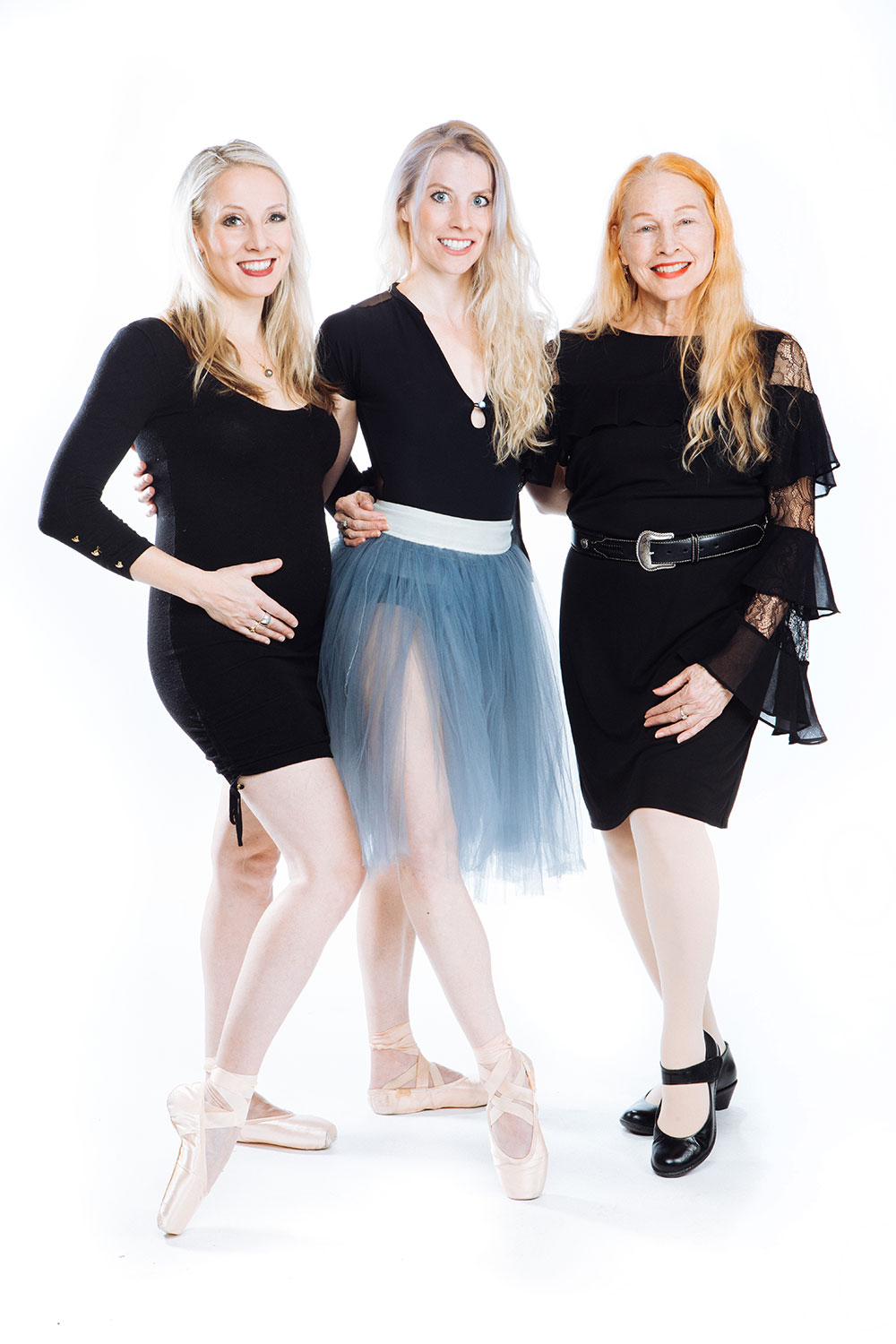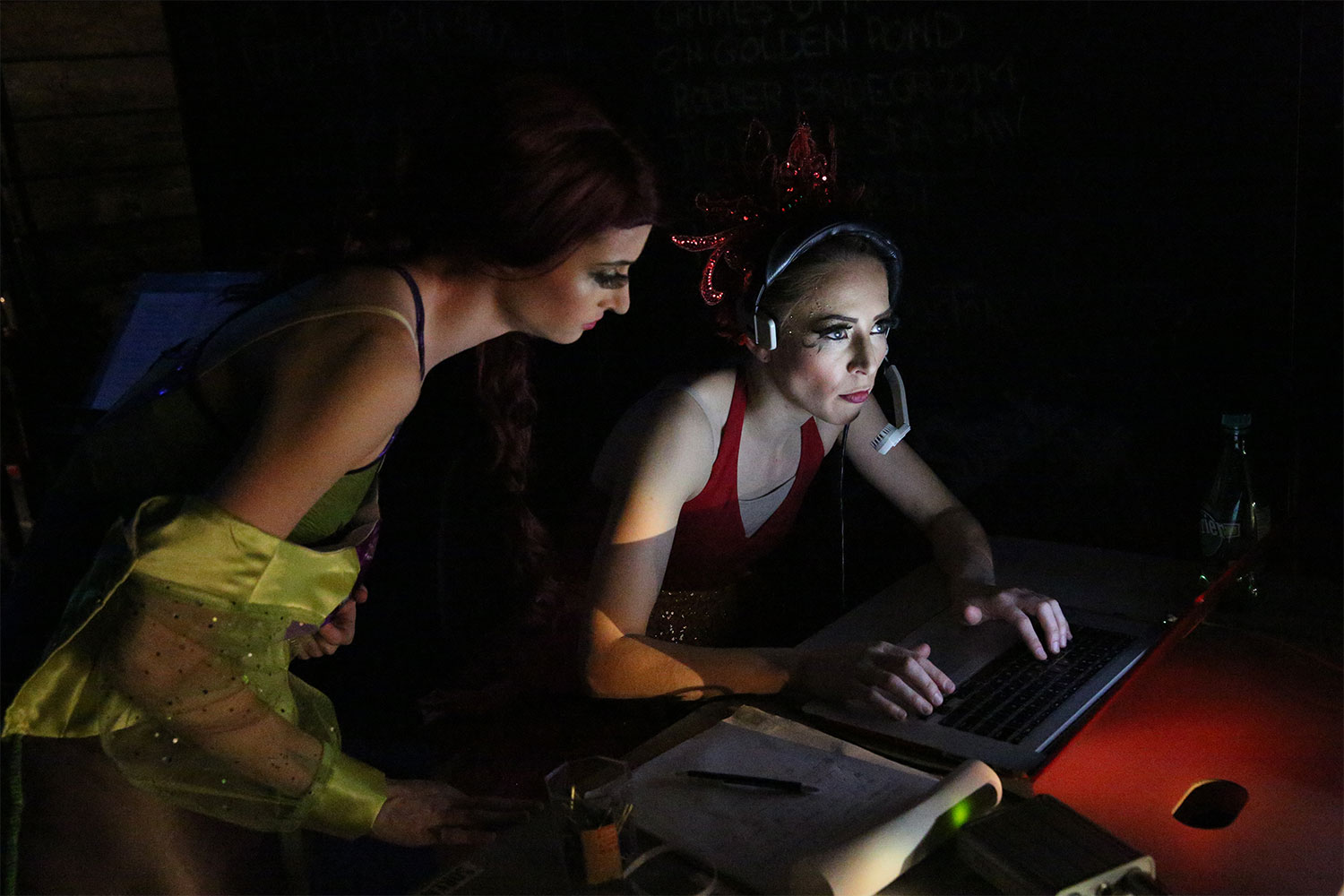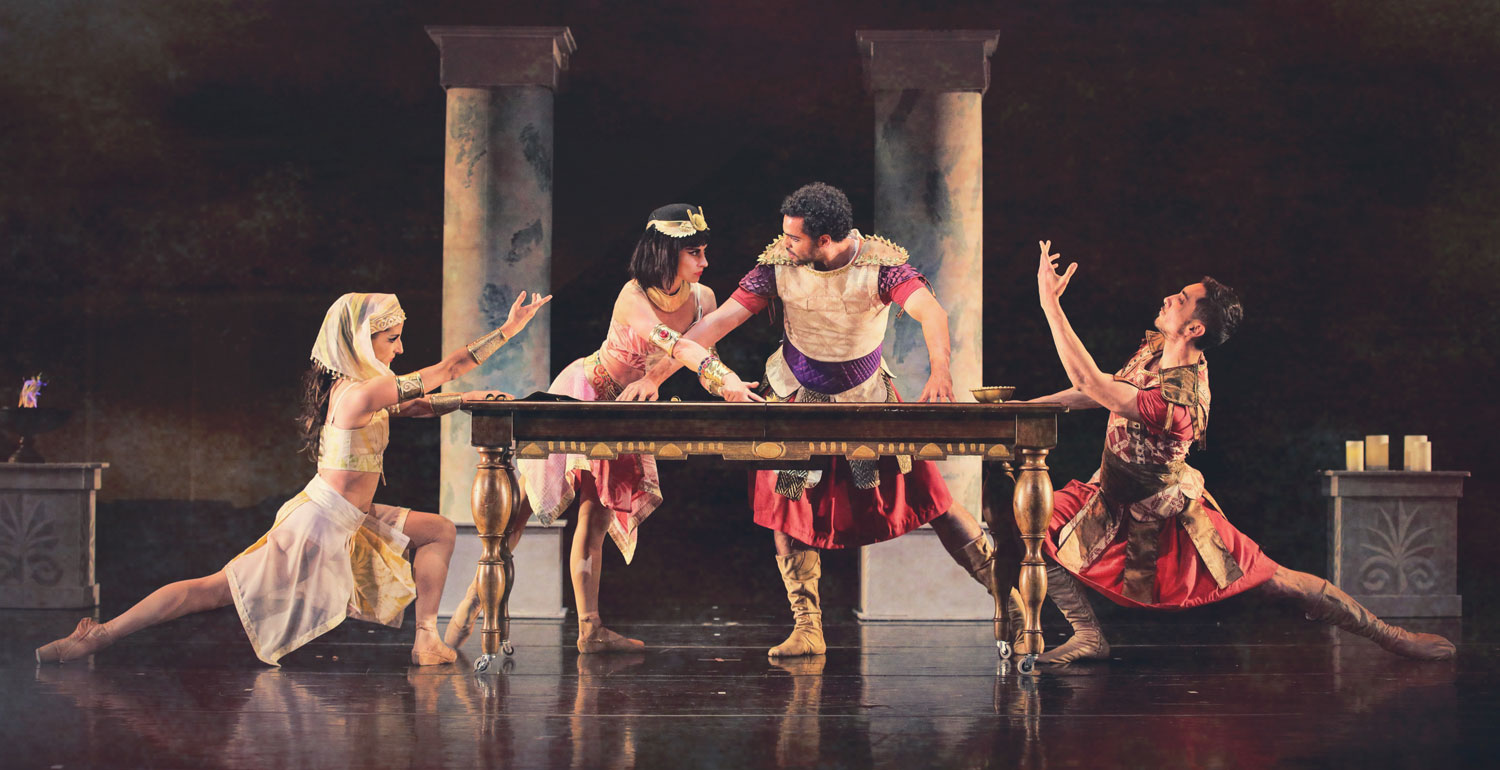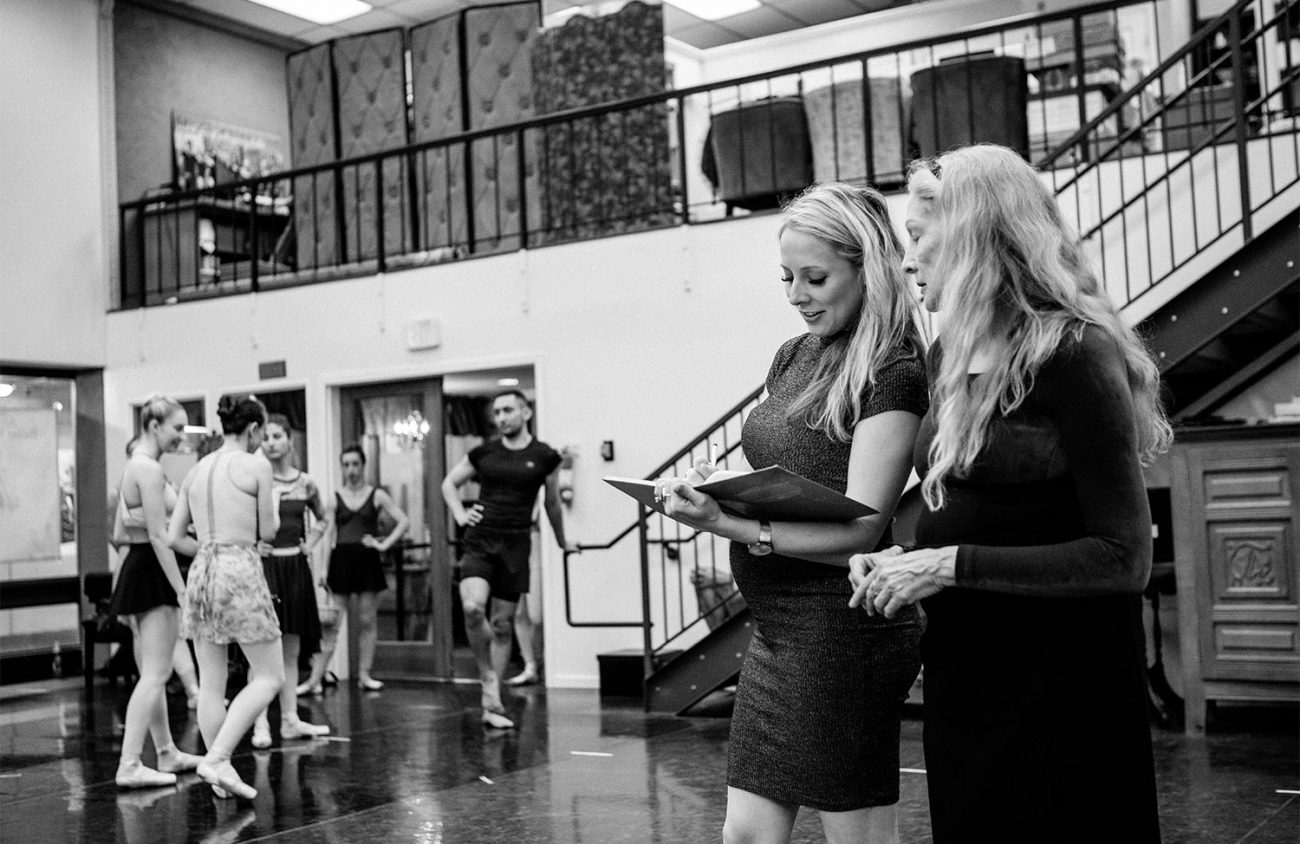Hannah and Ashley Bontrager were practically born into the arts, dancing before they could walk.
“Not a lot of girls get to grow up with a ballet studio in their basement and a mom who is a ballet dancer,” Hannah says.
The two sisters spent their early days toddling around the makeshift studio in their home in Buffalo, New York. They watched as their mother, Donna Marisa Bontrager, practiced diligently, instilling in her children a love of the arts that would one day culminate in Eugene’s innovative and audacious ballet company Ballet Fantastique.
Founded in 2000, Ballet Fantastique — often called BFan — is a professional chamber ballet and pre-professional academy as well as a community outreach program bringing the arts to underprivileged youth. They are the second resident ballet company at Eugene’s Hult Center.
If you’ve ever seen a Ballet Fantastique production, you know that this is not your grandmother’s Swan Lake. In fact, 48 percent of season ticket holders are under the age of 35.
Enlarge

Photo by Todd Cooper
Rooted in classical ballet technique, BFan’s art moves well beyond tradition, reaching for the stratosphere of new dance theater. The company strives to be Picasso in a Renaissance world, and storytellers unlike local ballet fans have ever seen.
“It’s about creating this interesting, hopefully provocative experience for the audience to think about a classic story in a new way,” says Hannah, 35, BFan’s executive director and prima ballerina.
“Doing stories for ballet is not new,” adds Ashley, 33, a founding principal dancer for the company. “We often take stories that people know, but set them in a different time period — stories that are not the typical 10 classic ballet stories that have been told for hundreds of years.”
Hannah invites me into the studio one October afternoon, just before the premier of Nevermore, an original ballet featuring the works of Edgar Allen Poe. I imagined a row of paper ballerinas, rhythmically sliding their wispy limbs through each position, and a ballet mistress in a stern bun, counting and scrutinizing every breath.
What I got was an infectiously smiling Hannah, blonde, barely pregnant and classically beautiful. Absent of the usual lacquer of show night, she is wearing frayed jeans and bright pink socks, gentle and methodic as she guides her younger sister, who looks more like an Olympic sprinter than a delicate ballerina.
“Think, ‘This love is bursting from my heart,’ versus just doing a ballet shape,” Hannah says. “Who are you? You’re the total dream girl! Would a dream girl have tree trunks for legs?”
Ashley seems tense at first, adjusting herself into dream girl mode.
Another dancer, Jim Ballard, stuffs a cookie in his face before faking his death over a velvet couch. The matriarch of this operation, artistic director Donna Marisa, is less than amused with Ballard’s momentary lapse into goofy. Soft spoken and resolute, she seems the closest to a hardened ballet mistress, but her unrestrained gold waves of hair have long rebelled against conformity.
Born of Canadian parents, Donna grew up in La Grande. Her father, president of Eastern Oregon College, now University, was a music man. Family trips to Portland for the opera and the symphony were childhood staples for her and her siblings, as were classical piano lessons. Unlike her daughters and, frankly, unlike nearly all professional dancers, Donna didn’t pick up dance until she left home for college.
An alumna of the University of Oregon studying architecture, Donna followed her artistic pursuits to New York City, learning and perfecting her practice of the Vaganova method, which is widely used in Russia, and performing internationally.
“I was fascinated with Russian ballet and Russian training,” says Donna. “It became a desire to have an academy and a school, to train and coach dancers to be professionals. That’s really how it started.”
Donna returned to Eugene, where Ballet Fantastique established its foundation in backyards and small studios. Hannah and Ashley put on family plays, stapling hand-painted signs to neighborhood telephone poles, while intensively training at a classical dance conservatory.
Both Donna and Hannah taught classes in the back of Smith Family Bookstore in those days.
Enlarge

Photo by Stephanie Urso
After graduating from the UO studying literature and dance, Hannah taught herself to write grants, which ultimately led to funding for their City Center for Dance in downtown Eugene. She spearheaded every fundraising opportunity under the barre.
“We did ballerina babysitting, bake sales, car washes. I auctioned off dates with my sister,” Hannah says.
With Eugene Ballet already an established company vying for community support, the Bontragers knew they needed to reinvent the wheel.
“We are the underdogs, so we have to work twice as hard,” Donna says. “We started doing programming that would involve a story, a certain time period, and we liked being able to create our own choreography.”
One of their first ventures into dance performance was “Love at the Café Terrace,” a 25-minute interpretation of Van Gogh’s famous painting featuring a 30-part orchestra. They’ve put a Wild West spin on Shakespeare’s As You Like It, which toured in San Benedetto, Italy. They did the Charleston en pointe in Pride and Prejudice, a Parisian jazz ballet. They took Alice down a steam-punk rabbit hole, and made Aladdin moonwalk.
Ever ambitious, they have continued to push the limits on grassroots ballet.
Ballet Fantastique productions are often original works with unique musical pairings. A recent production of Cleopatra included a live performance from Beats Antique, a California band that Hannah asked three times to join their project before she finally showed up at the band’s doorstep, a grand jeté of faith.
“We are as crazy as a band trying to put together three new albums with all original music every year,” Hannah says.
Though the Bontragers have always relied on extended family, community support, and the blood, sweat and tears from generous volunteers, the three women remain at the heart of Ballet Fantastique’s daring initiative.
Enlarge

Photo by Greg Burns
Not without their diva moments and over zealous creativity, typical familial tensions mark the path of progress. Fights over coffin lids, group text messages debating what color gold Cleopatra should wear… these are the weary labors of mothers and daughters.
“It’s not always easy,” Ashley says. “It has its pros and cons, but I always remind myself that I’m lucky enough to see my family on a regular basis and share this passion.
“Sometimes you just need to take a step back and have a sense of humor about arguing over Zorro’s pants,” Hannah adds.
Despite the grueling workload, the 24-hour days and the never-ending challenge to create perfection on donations and grants, the Bontragers remain dedicated to the arts and to each other.
“We have to find ways to work together and have to find the right path,” Donna says. “The main thing is that we love one another and that we find ways to bring out our art. Human beings need art. It’s a necessity, and that just happens to be our gift.” ν
BFan’s production of Babes in Toyland runs Dec. 13-15 at the Hult Center. Tickets and info at BalletFantastique.org.
